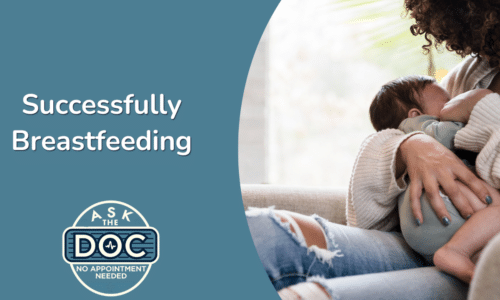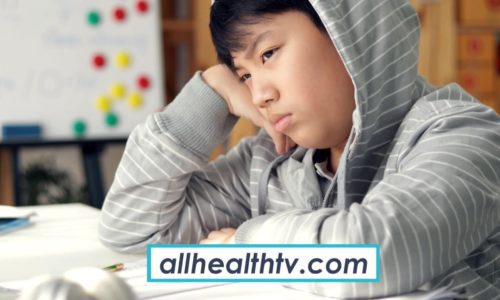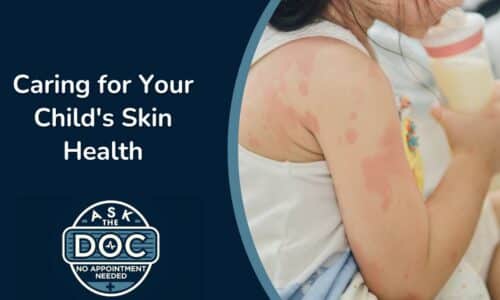When to Call the Pediatrician: A Parent’s Guide to Fevers, Colds, Allergies & More |
When to Call the Pediatrician: A Parent’s Guide to Fevers, Colds, Allergies & More
As parents, deciding when to take your child to the doctor can be tough. Is it just a cold—or something more serious? On this insightful episode of Ask the Doc: No Appointment Needed, board-certified pediatrician Dr. Scarlet Constant from Constant Care Pediatrics breaks down the signs, symptoms, and strategies for handling childhood illnesses with confidence.
Cold, Flu, or Allergies? Here’s How to Tell
Chloe, a concerned mom, asked how to distinguish between a common cold, the flu, and allergies. Dr. Constant offered the following guidance:
- Common Cold: Caused by a virus, symptoms include a runny nose, sore throat, and mild cough. It typically resolves within 3–5 days with rest, fluids, and over-the-counter medications.
- Flu (Influenza): More severe and often includes fever, body aches, fatigue, and productive cough. Diagnosis is confirmed via a flu test. Complications are more common, so medical evaluation is important.
- Allergies: Symptoms include a runny or stuffy nose, itchy or watery eyes, and occasional coughing—without fever. If symptoms persist beyond a week or don’t respond to antihistamines, seek medical advice.
Key takeaway: A fever is never a symptom of allergies.
The Flu Vaccine: Why It Matters
Melanie, another viewer, expressed concern about giving her children the flu shot. Dr. Constant strongly advocated for flu vaccination, clarifying that:
- The vaccine helps reduce the severity of symptoms if a child does get the flu.
- It’s best to vaccinate in early fall but can be done anytime during flu season—even after a child has already had the flu, since different strains may still circulate.
Allergies vs. Illness: When to Test
Madison and Keat raised concerns about allergy symptoms in children. Dr. Constant explained:
- Initial screening often involves a blood test to identify common allergens based on your region.
- Skin testing (performed by an allergist) confirms sensitivities by applying allergen extracts to the skin and observing for a reaction (e.g., hives).
- These are not painful injections, but dabs of liquid extract on the skin.
If confirmed, treatment can include medications and lifestyle adjustments to reduce allergen exposure.
Bacterial vs. Viral Infections: What’s the Difference?
Monica asked about the distinction between bacterial and viral infections. Dr. Constant shared:
- Bacterial infections often include thick, odorous nasal discharge, prolonged fever, and may require antibiotics (e.g., sinusitis, pneumonia, UTIs).
- Viral infections typically include milder symptoms such as sore throat, runny nose, and body aches, and resolve on their own with supportive care.
Important: Only a healthcare provider can determine the cause and appropriate treatment.
What Is Hand, Foot, and Mouth Disease?
Angie asked for clarity about this common childhood illness. Dr. Constant explained:
- Caused by the Coxsackie virus, it results in painful red blisters in the mouth, on hands, and feet.
- Kids may also have a fever, malaise, and reduced appetite.
- It spreads through saliva and nasal secretions, not from touching the blisters.
- Once fever-free for 24 hours, a child is typically no longer contagious.
Protecting Immunocompromised Family Members
Robin asked about safely allowing her preschooler to visit a grandmother with a weakened immune system. Dr. Constant advised:
- Be cautious during illness surges or if your child has any symptoms.
- A “safe window” includes at least a week of no symptoms at home or school before visits.
- Always consult your pediatrician to evaluate the specific risks.
Fever Remedies: Myth or Fact?
Aan asked about the old practice of putting alcohol on the feet with socks to reduce fever. Dr. Constant debunked this myth, explaining:
- The body loses heat through the head, hands, and feet, which is why this folk remedy might seem effective.
- However, better methods include:
- Giving your child a lukewarm bath
- Dressing them in light clothing
- Keeping them hydrated
- Using fever-reducing medications like acetaminophen or ibuprofen when appropriate
- Giving your child a lukewarm bath
Reminder: Treating the fever does not cure the illness—it only manages the symptom.
Should You Still Use a Humidifier?
Mickey, now a grandparent, asked if today’s pediatricians still recommend humidifiers. Dr. Constant said yes—especially for:
- Nasal congestion
- Dry, irritated airways
Though they don’t treat infections, humidifiers can make children more comfortable during recovery.
Parenting doesn’t come with a manual—but with expert advice from pediatricians like Dr. Scarlet Constant, you can make informed decisions about when to head to the doctor and when to confidently care for your child at home.
Watch the full episode of Ask the Doc: No Appointments Needed here: https://youtube.com/live/TW7mSvtH23s









